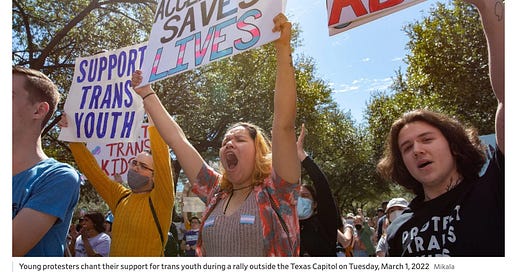We are two journalists writing about family and caregiving from a feminist perspective. Research, interviews and personal stories connecting systemic issues and family life; also, 40+ mom humor. You can read past issues here. follow us on Instagram here. Click below to get this newsletter in your inbox, free.
I worked briefly at a foster care agency in …
Keep reading with a 7-day free trial
Subscribe to Matriarchy Report to keep reading this post and get 7 days of free access to the full post archives.



